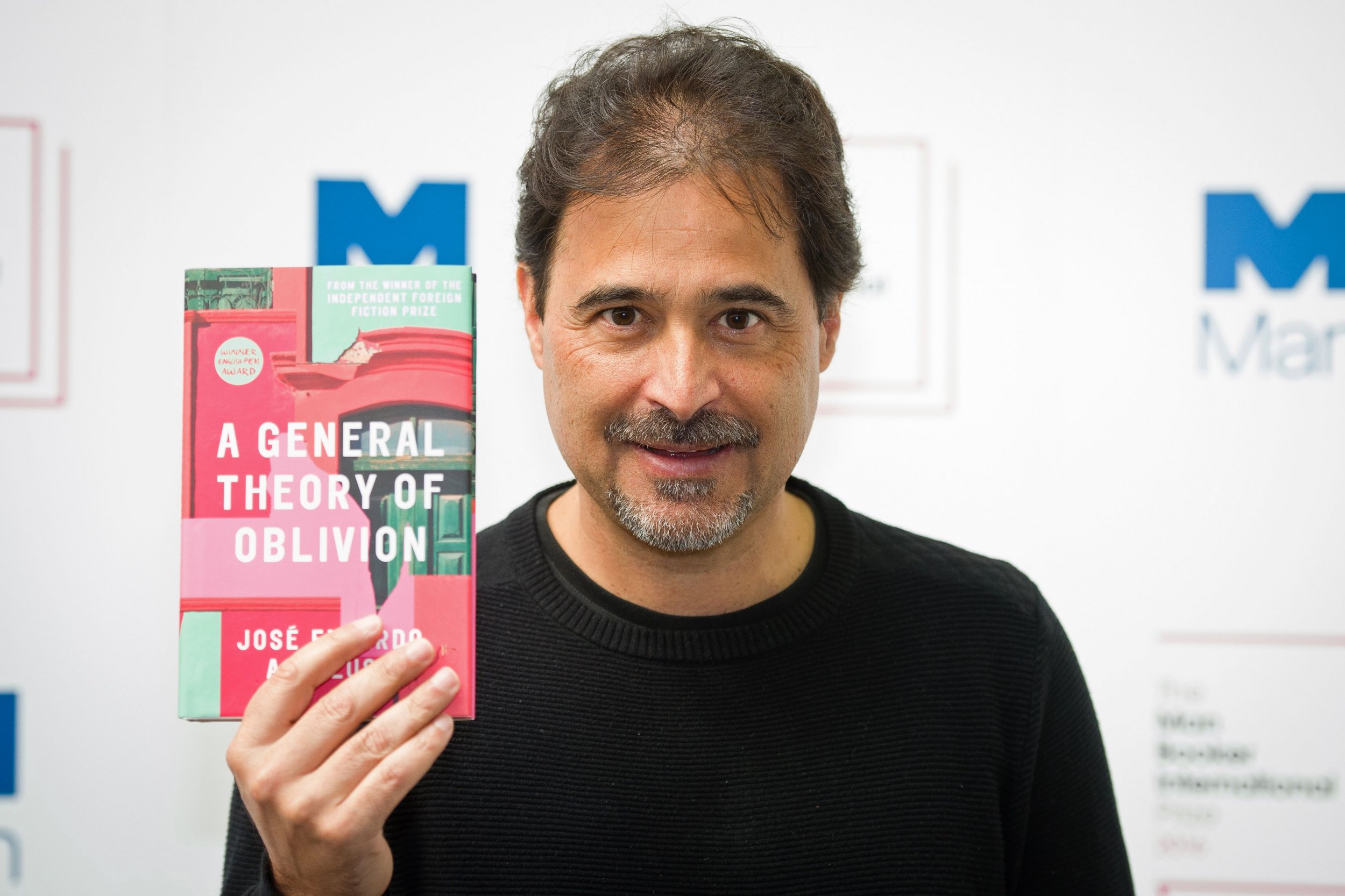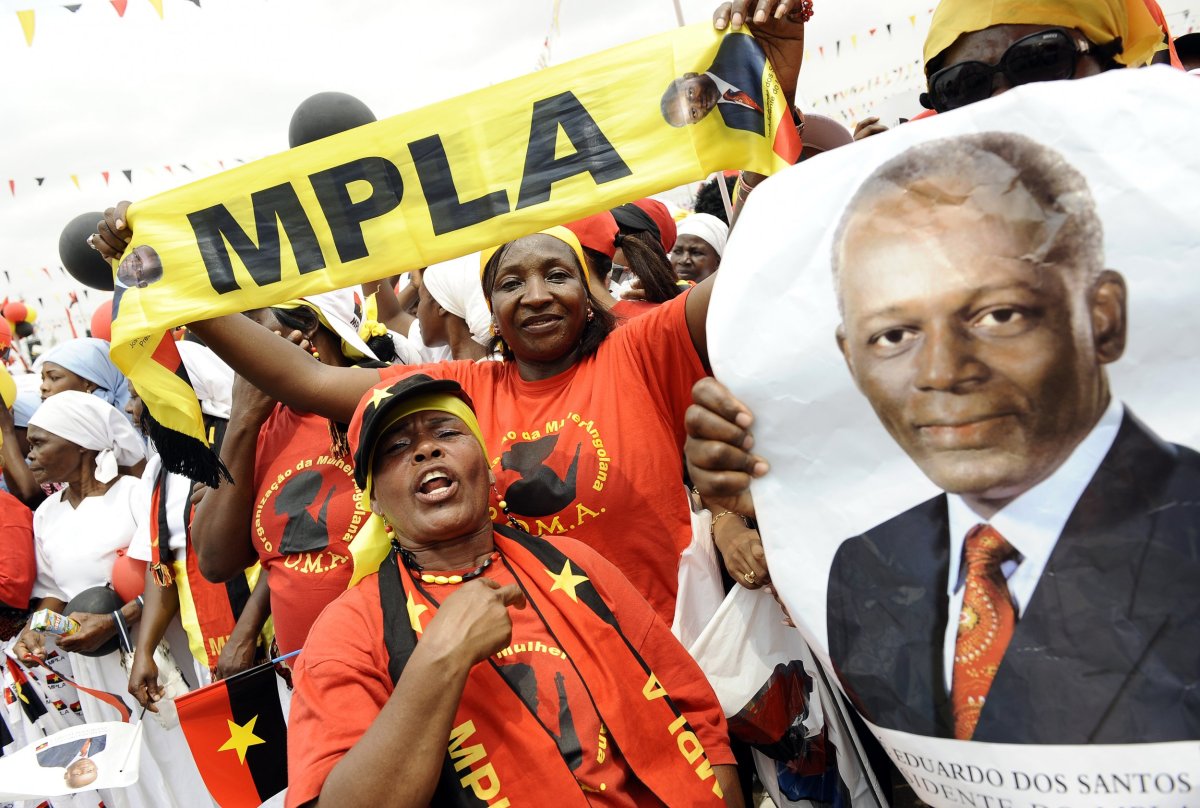
Angola has its first ever Man Booker International Prize nominee.
José Eduardo Agualusa's A General Theory of Oblivion recounts the tale of one woman's isolationist reaction to the southern African country's independence from Portugal, which sparked a decades-long civil war that claimed thousands of lives.
Here, Newsweek lays out what you need to know about the author, his work and the story of the Angolan civil war.
Who is José Eduardo Agualusa?
Born in Angola's second city, Huambo, Agualusa, 46, has established himself as a premier name in the Portuguese-language literary world. He divides his time between Angola, Portugal and Brazil, and his novel Creole was recognized by the Portuguese Grand Prize for Literature. Agualusa's work has been translated into dozens of languages and he became the first African to win the U.K.'s Independent Foreign Fiction Prize in 2007 for his novel The Book of Chameleons, which was translated into English by Daniel Hahn.
What's his book about?
A General Theory of Oblivion is set on the eve of Angolan independence in 1975. A Portuguese expatriate, Ludovica Fernandes Mano, takes the drastic step of sealing herself inside her apartment in the capital, Luanda, for fear of what is to come. Ludo gets through the next almost three decades by growing vegetables on her building's terrace and spends her hours listening to the radio for news of the outside world while scribbling her thoughts into notebooks and eventually—once she has to burn her tomes for firewood—onto the walls of her apartment. She only re-emerges after almost 30 years of isolation following an encounter with a young burglar, and finds the Angolan capital changed beyond what she can imagine.
What was the Angolan Civil War about?
Following almost five centuries of Portuguese rule, Angola finally emerged into independence in 1975 on the back of a war. The three groups that led the rebellion against the Portuguese—the Popular Movement for the Liberation of Angola (MPLA), the National Front for the Liberation of Angola (FNLA), and the National Union for the Total Independence of Angola (UNITA)—signed a power-sharing agreement in 1975. But the agreement did not last and the civil war soon became a proxy battleground for different sides in the Cold War. The Soviet Union and Fidel Castro's Cuba aided the MPLA, which had Marxist leanings, with Castro even sending troops. The United States provided aid and military training for both the FNLA and UNITA, and the FNLA also received assistance from Zaire (now Democratic Republic of Congo), which was ruled by U.S. ally Mobutu Sese Seko at the time. South Africa's Apartheid government also provided military reinforcement for UNITA, which was led by warlord Jonas Savimbi.

The conflict persisted in fits and starts over the next 27 years until 2002, when UNITA abolished its armed wing and demobilized. MPLA leader José Eduardo dos Santos—who took over following the death of the group's founder Agostinho Neto—has held power since 1979 and is credited with transforming the formerly socialist country into one of Africa's fastest-growing economies. A definitive death toll has never been established for the decades-long civil war, but it is believed to number in at least the tens of thousands. The war's legacy recently came back into the public eye after the family of UNITA leader Savimbi unsuccessfully attempted to sue the makers of the videogame Call of Duty for his depiction in the game.
What is Angola like today?
Angola's economy has benefited from the country's huge oil wealth—it is Africa's second-biggest oil producer behind Nigeria, and churned out 1.8 million barrels per day in 2015. The country held its first parliamentary elections in 16 years in 2008, but presidential elections scheduled for 2009 were delayed. Then in 2010, the constitution was amended and direct elections for the post of president abolished; instead, the president was to be the head of the ruling party. The MPLA polled 74 percent of the vote in the 2012 elections, ensuring that dos Santos— one of Africa's longest-serving leaders —will remain in power until at least 2017.
Uncommon Knowledge
Newsweek is committed to challenging conventional wisdom and finding connections in the search for common ground.
Newsweek is committed to challenging conventional wisdom and finding connections in the search for common ground.
About the writer
Conor is a staff writer for Newsweek covering Africa, with a focus on Nigeria, security and conflict.
To read how Newsweek uses AI as a newsroom tool, Click here.








